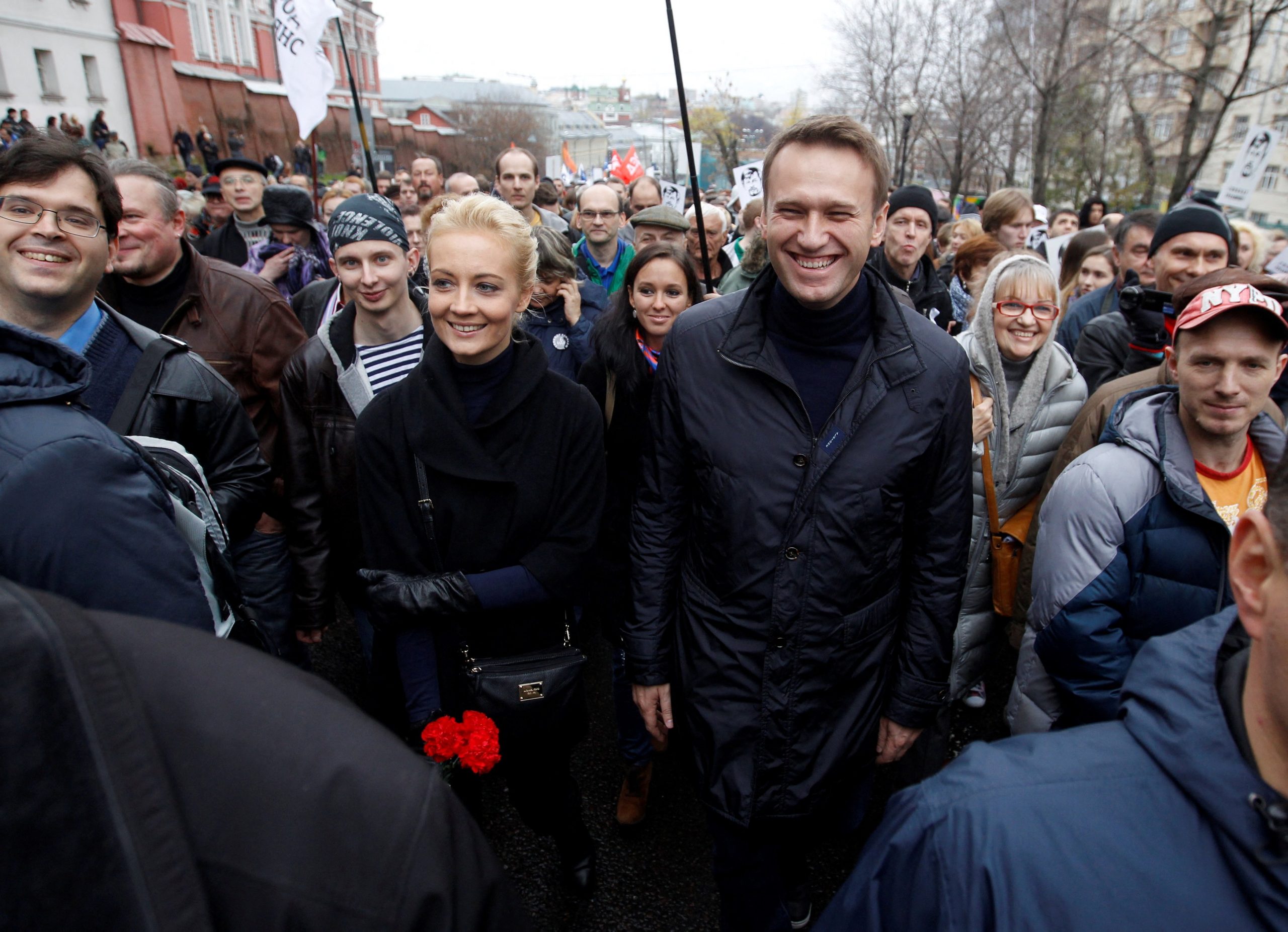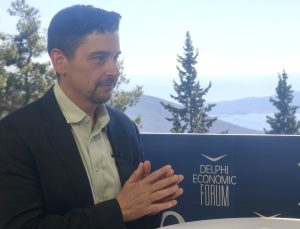Russian opposition figure Alexei Navalny ’s death Friday at a Russian prison camp in the Arctic silenced a man who was arguably the most influential remaining critic of President Vladimir Putin and the authoritarian state the former spy has methodically built on the wreckage of the Soviet Union.
Putin, who has effectively run Russia for 24 years and is seeking to extend his time in office for another six years in elections set for next month, now strides the Russian political stage with almost no visible challengers. Many of those who have opposed him have ended up in prison, or dead.
Since Putin launched his invasion of Ukraine in February 2022, the Kremlin has introduced laws to punish critics of its military campaign, muzzled independent media, branded pro-peace authors and artists as “foreign agents” and denied Russians the ability to publicly express opinions about the war.
Authorities have unleashed a wave of repression to ensure compliance. Many ordinary citizens have been swept up in a crackdown and handed fines and lengthy jail times for what authorities view as discrediting the army or spreading misinformation about Russia’s stalled military campaign. A 72-year-old woman who questioned Russia’s conduct in the war in Ukraine online was sentenced recently to 5½ years in jail.
Navalny and the network of political offices he established in 2017 were once able to assemble protests in major Russian cities, rattling the Kremlin and prompting the deployment of riot police to quell them. There hasn’t been a significant wave of demonstrations since the days just after Russia invaded Ukraine.
Hundreds of anti-Kremlin activists have fled the country, many of them continuing from abroad their efforts to shed light on government corruption and the crackdown on opposition within Russia, despite being declared foreign agents by the state and facing prosecution if they return home.
Russia’s parliament recently passed a bill allowing authorities to confiscate the assets of people convicted of discrediting the Russian military, including those living abroad. Vyacheslav Volodin , the speaker of the parliament’s lower house, said such people “publicly throw dirt at Russia, insult our soldiers and officers” and “feel their impunity, believing that justice cannot reach them.”
Even lawyers who served government critics as a last line of defense against a legal system that is being reshaped to punish dissent have either been jailed or fled the country. Three of the lawyers who have represented Navalny are now in jail on charges of involvement in an extremist group. Two have been arrested in absentia.
“It’s not even clear how any doubt in what Putin says can be voiced in Russia, what kind of disagreement can be raised,” said Konstantin Sonin, an expert on Russian politics at the University of Chicago who personally knew Navalny.
Faced with punishment for criticizing the war, which the Russian government refers to euphemistically as a “special military operation,” ordinary Russians are also starved of access to information that questions the Kremlin narrative.
Putin’s government has banned the social-media platforms X, Instagram, and Facebook . Although the social-media messenger platform Telegram is widely used as a source of information, state media remains the dominant source of news for most Russians. Television, which is almost entirely controlled by the state, pumps out daily propaganda reports that paint the West as Russia’s enemy, rails against Putin’s political opponents, and portrays those who left the country as traitors.
“A large number of Russians sincerely believe that Russia has never started wars and has never lost them. Therefore, they are inclined to trust the broadcast image of a future victory,” Mikhail Vinogradov, president of the St. Petersburg Politics Foundation, a research center, said in emailed comments.
That widespread and effective campaign to stifle opposition, combined with state media’s relentless promotion of pro-Kremlin narratives, has cleared the field for Putin to win a fifth term in office when Russians head to the polls, a result that could make him modern Russia’s longest-serving leader, surpassing Joseph Stalin .
Even before Navalny’s death, Putin faced no real challenge in the coming presidential election. The three Putin rivals permitted to run have all publicly backed the president. The only two antiwar candidates have been barred from contesting the vote.
As part of his travels across Russia ahead of the election, Putin on Friday appeared before factory workers in the Urals city of Chelyabinsk. Before the event aired, Kremlin spokesman Dmitry Peskov said Putin had been informed of Navalny’s death .
Putin smiled and looked upbeat as he praised the factory and joked with its employees. He didn’t comment on Navalny’s death.
In regular speeches, Putin has framed the war in Ukraine as an existential fight with the West, which he accuses of trying to bring about Russia’s collapse, and placed the Russian economy on a war footing as he hints at a protracted standoff. He has expedited efforts to bolster Russia’s nuclear arsenal and develop a host of new strategic weapons, including one designed to attack American and allied satellites .
Putin has also set about grooming the next generation by molding their views on the West and Russia’s place in the world. Classes touch on topics such as the heroism of Russian soldiers fighting in Ukraine and why Crimea—a Ukrainian peninsula that Moscow annexed in 2014—is important to Russia.
Updated history books have been introduced in schools, highlighting what they describe as the West’s long-held plans to destabilize Russia, the U.S. and European Union’s falsification of the Soviet Union’s role in World War II and its relationship with Nazi Germany, and the revival of ultranationalism in modern Ukraine. A new basic military and naval training program has been introduced in schools, with older students receiving more advanced instruction, including how to handle a Kalashnikov assault rifle and use hand grenades.
“Preparing themselves for a long war, that’s what they’re doing now,” said James Nixey, head of the Eurasia-Russia program at the London think tank Chatham House. “They are able to tell the populace that this is a question of national security, that this is a question of honor and that right is on their side.”
Navalny sought for years to counter this narrative with videos on social media that broadcast a simple and accessible message at odds with the Kremlin line. Even after his poisoning in 2020, when he collapsed on a flight from Siberia and was flown for emergency treatment to Germany, he chose to return to Russia and face the prospect of imprisonment on charges he said were trumped up to silence him .
He continued, through his lawyers, to publish political tracts from prison, predicting Putin’s demise and railing against the war. Meanwhile, other opponents of the Kremlin were placed behind bars, including Ilya Yashin and Vladimir Kara-Murza . Yevgeny Prigozhin , who led a mutiny against Russia’s military leadership in June, was in August killed in a plane crash . Wagner, the paramilitary force he ran, was dismantled and taken over by the Defense Ministry.
After the announcement of Navalny’s death on Friday, several dozen people lined up in Moscow to lay flowers in honor of the man whose arrest in January 2021 inspired tens of thousands to rally in vain for his release. Knowing that political slogans can lead to arrest, they stood in silence.
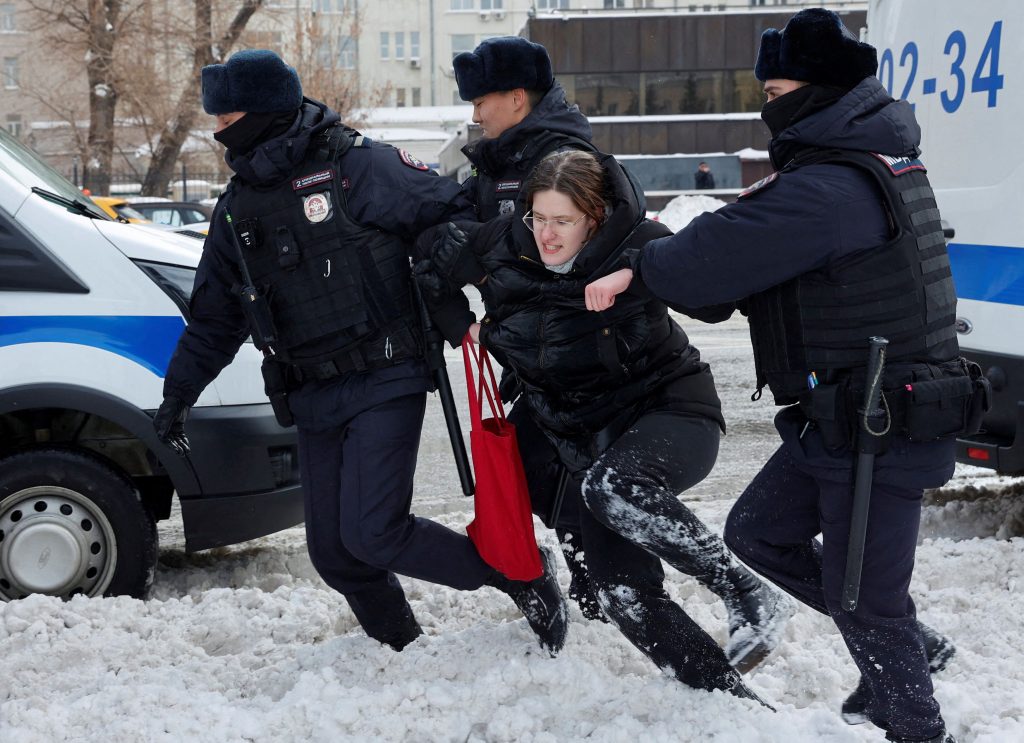
Police officers detain a woman during a gathering in memory of Russian opposition leader Alexei Navalny near the Wall of Grief monument to the victims of political repressions in Moscow, Russia February 17, 2024. REUTERS/Stringer TPX IMAGES OF THE DAY
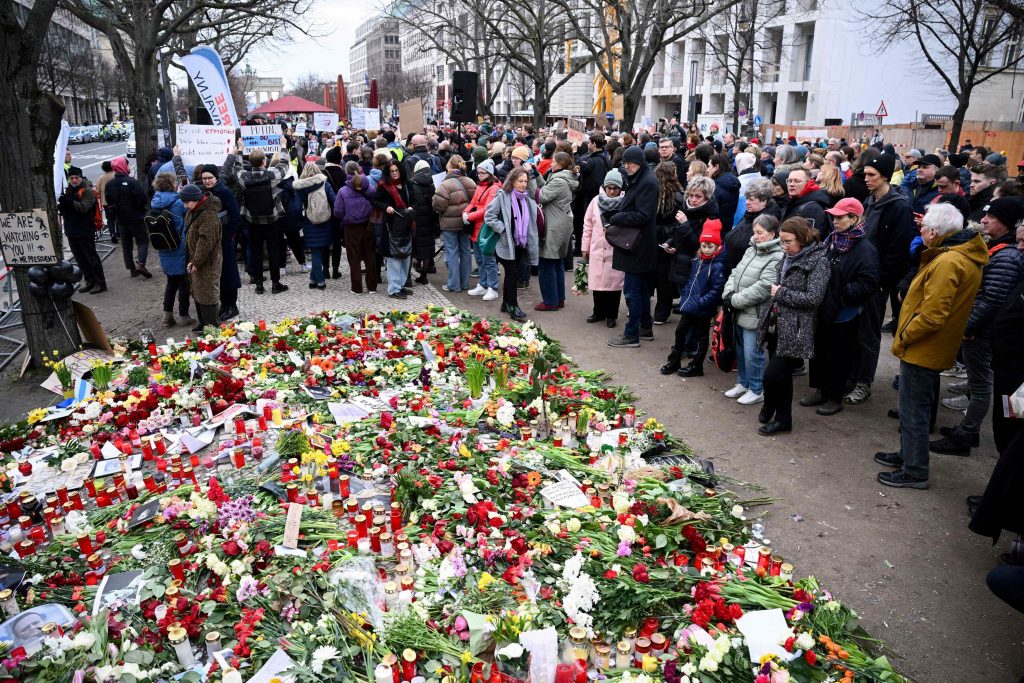
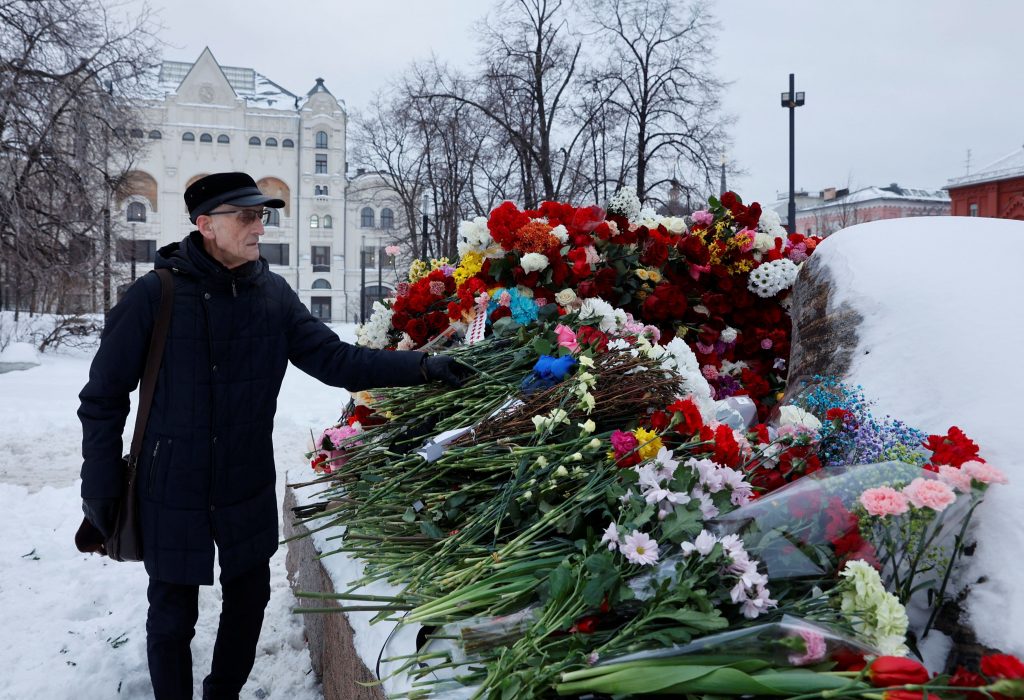
A man lays flowers at the Solovetsky Stone monument to the victims of political repressions to honour the memory of Russian opposition leader Alexei Navalny in Moscow, Russia February 17, 2024. REUTERS/Stringer
Write to Ann M. Simmons at ann.simmons@wsj.com and Matthew Luxmoore at matthew.luxmoore@wsj.com
